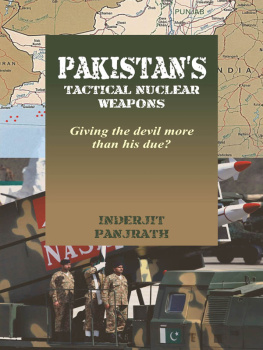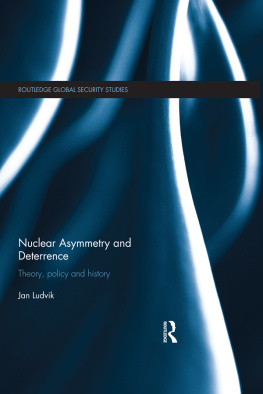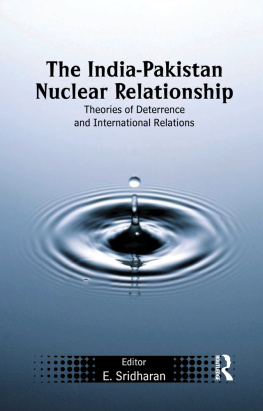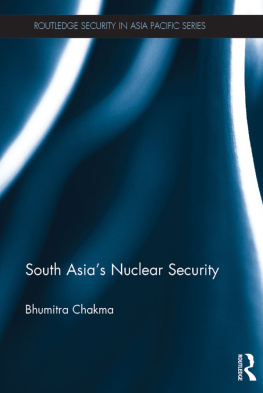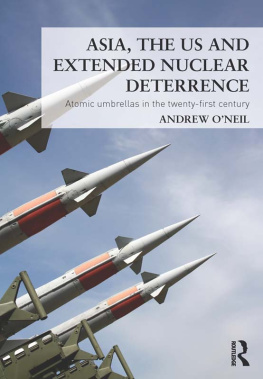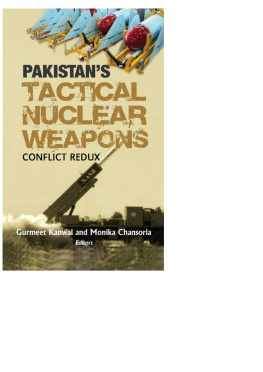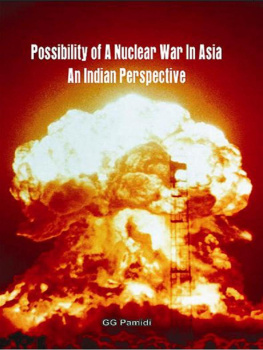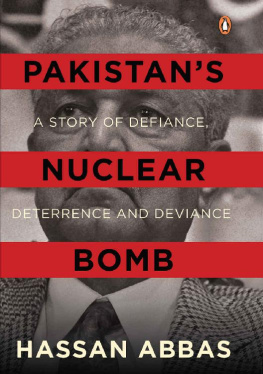Zafar Khan - Pakistans Nuclear Policy: A Minimum Credible Deterrence
Here you can read online Zafar Khan - Pakistans Nuclear Policy: A Minimum Credible Deterrence full text of the book (entire story) in english for free. Download pdf and epub, get meaning, cover and reviews about this ebook. year: 2014, publisher: Routledge, genre: Politics. Description of the work, (preface) as well as reviews are available. Best literature library LitArk.com created for fans of good reading and offers a wide selection of genres:
Romance novel
Science fiction
Adventure
Detective
Science
History
Home and family
Prose
Art
Politics
Computer
Non-fiction
Religion
Business
Children
Humor
Choose a favorite category and find really read worthwhile books. Enjoy immersion in the world of imagination, feel the emotions of the characters or learn something new for yourself, make an fascinating discovery.

- Book:Pakistans Nuclear Policy: A Minimum Credible Deterrence
- Author:
- Publisher:Routledge
- Genre:
- Year:2014
- Rating:3 / 5
- Favourites:Add to favourites
- Your mark:
Pakistans Nuclear Policy: A Minimum Credible Deterrence: summary, description and annotation
We offer to read an annotation, description, summary or preface (depends on what the author of the book "Pakistans Nuclear Policy: A Minimum Credible Deterrence" wrote himself). If you haven't found the necessary information about the book — write in the comments, we will try to find it.
In May 1998, in reaction to Indias nuclear weapons tests, Pakistan tested six nuclear weapons. Following this, the country opted for a policy of minimum deterrence, and within a year Pakistan had altered its policy stance by adding the modifier of minimum credible deterrence. This book looks at how this seemingly innocuous shift seriously impacted on Pakistans nuclear policy direction and whether the concept of minimum has lost its significance in the South Asian regions changed/changing strategic environment.
After providing a brief historical background exploring why and how Pakistan carried out the nuclear development program, the book questions why Pakistan could not sustain the minimum deterrence that it had conceptualized in the immediate aftermath of the 1998 test. It examines the conceptual theoretical framework of the essentials of minimum deterrence in order to question whether Pakistans nuclear policy remained consistent with this, as well as to discover the rudimentary factors that are responsible for the inconsistencies with regard to minimum deterrence conceived in this study. The book goes on to look at the policy options that Pakistan had after acquiring the nuclear capability, and what the rationale was for selecting minimum deterrence. The book not only highlights Pakistan deterrent force building, but also analyzes closely Pakistans doctrinal posture of first use option. Furthermore, it examines the policy towards arms control and disarmament, and discusses whether these individual policy orientations are consistent with the minimum deterrence.
Conceptually providing a deeper understanding of Pakistans post-1998 nuclear policy, this book critically examines whether the minimum deterrence conceived could be sustained both at the theoretical and operational levels. It will be a useful contribution in the field of Nuclear Policy, Security Studies, Asian Politics, Proliferation/Non-Proliferation Studies, and Peace Studies. This book will be of interest to policy makers, scholars, and students of nuclear policy, nuclear proliferation and arms control related research.
Zafar Khan: author's other books
Who wrote Pakistans Nuclear Policy: A Minimum Credible Deterrence? Find out the surname, the name of the author of the book and a list of all author's works by series.

